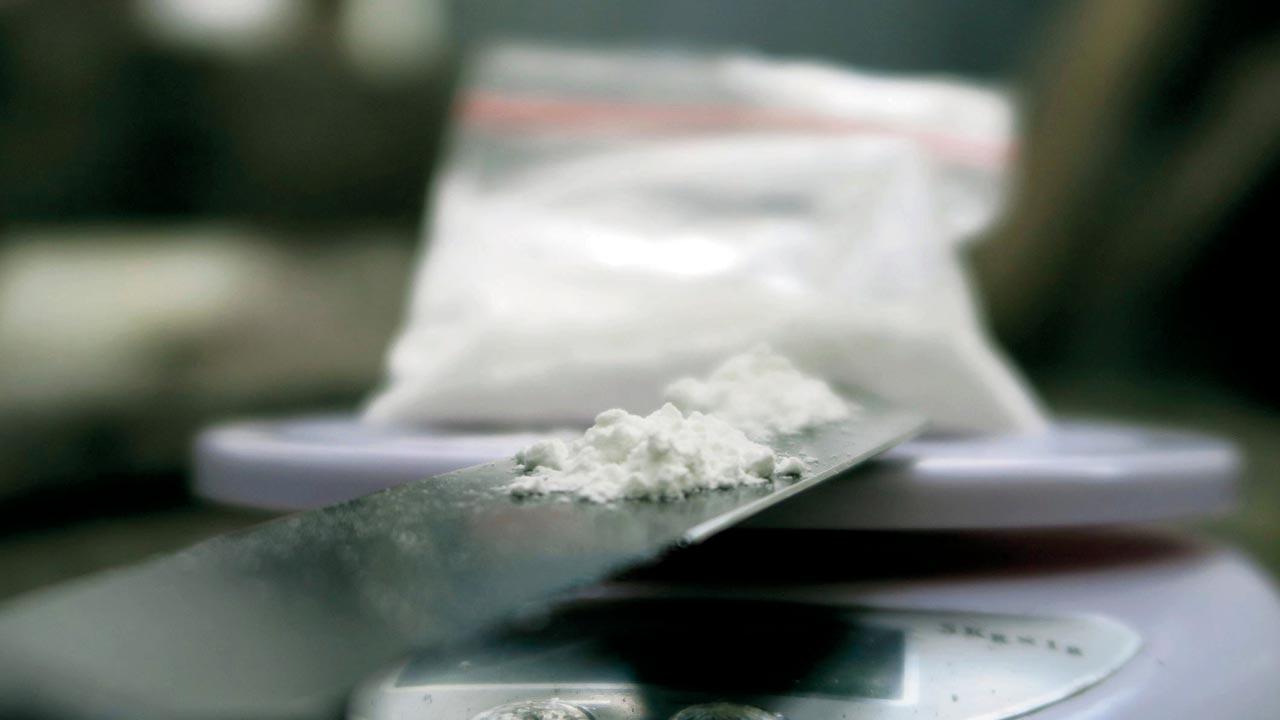Technology facilitating MD production; some Nigerians, however, only need pressure cooker to churn out narcotic

If traffickers fail to entice pharmacists into procuring chemicals, they turn to the hidden corners of the internet ie the dark web. Representation pic
The easy availability of banned chemicals over the dark web and drug manufacturing tutorials on YouTube facilitate the production of mephedrone (MD) and enable traffickers reap unexpectedly high profits in no time.
Over two weeks, mid-day met numerous individuals accused of orchestrating large syndicates involved in synthetic drug production, and police officers, to grasp the intricate methods employed by MD manufacturers to conceal their illicit operations.
Roping in the unemployed
Once raw materials are obtained, traffickers need a safe production lab, be it a functional or defunct chemical factory or a small room in a building or slum, to synthesise chemicals. To run their syndicates smoothly, the masterminds lure well-educated unemployed individuals facing financial hardship. The gang leaders offer them a means to support themselves and their households, said a police officer.
However, things aren't as straightforward as they appear, revealed a few people from drug manufacturing syndicates who were sent to jail in Narcotic Drugs and Psychotropic Substances (NDPS) cases in Maharashtra.
 One needs a licence to purchase of chemicals that are used to manufacture mephedrone. Representation pic
One needs a licence to purchase of chemicals that are used to manufacture mephedrone. Representation pic
Free tutorials
Police said that free tutorials on the internet are a headache for agencies. “There are many videos available on YouTube uploaded from all over in the world and people watch them across the globe. Many accused have told us that they got tempted by the lure of easy money after watching such content,” said the police.
“The entire mephedrone-production process is explained in YouTube videos,” the police said.
Intermediaries’ role
Sources revealed that prior to a 2014 ban and MD’s classification as a narcotic substance, they could readily obtain the required chemical components with ease.
“Before the government banned MD components in 2014, they were available for R15,000 in total. The price is now R50,000, but only a licence-holder can buy these chemicals from a shop,” said a source.
“After the ban, the raw materials are not easily available. One needs a licence to justify their purchase. So, the traffickers started to seek out intermediaries to obtain the chemicals,” confided a source, who added that corrupt pharmacists play a vital role in the smooth and discreet operations of drug syndicates.
Dark matter
Another source revealed that if traffickers fail to entice pharmacists, they turn to the hidden corners of the internet ie the dark web, which must be accessed via a specialised browser to make anonymous visits.
“In a bid to dodge police crackdown, the racketeers hire tech-savvy people to source chemical components illegally via the dark web, bitcoin is used to make purchases. Once the order is placed, the components are delivered within 20 days,” said the source.
The Chinese connection
Drug lords take the help of courier companies to source banned chemicals from foreign countries such as China. Recently, the MBVV police arrested a 45-year-old drug lord, Sameer Pinjar, who had been sourcing key chemicals from China via courier to run a clandestine synthetic drug manufacturing unit in Mokhada that had been secretly running for over 18 months.
Police said that Pinjar had worked at a chemical factory in Hyderabad and was knowledgeable about the export-import business. His knowledge aided in understanding chemical properties, while his export-import exposure revealed system loopholes for personal gain, said the police.
According to sources, a precise blend of chemicals is needed to synthesise products accurately; otherwise, there could be explosions in the drug factory. “So, to avoid any mishaps, drug traffickers entice chemical engineers into synthesising chemical components,” said the source.
Since low investment yields unexpectedly high returns in manufacturing synthetic drugs, chemical engineers who initially worked for drug lords at their factories start setting up their own labs to earn crores of rupees in a month.
Last year in October, the Gujarat police and Directorate of Revenue Intelligence (DRI) personnel arrested chemical engineer Jitesh Hinhoria, a former employee of a pharmaceutical company, for running a narcotic empire in Aurangabad and seized crores of rupees. He is accused of running a drug manufacturing plant where many synthetic drugs were reportedly prepared.
In August 2022, the anti-narcotics cell (ANC) of the Mumbai police arrested Dahisar resident Prem Prakash Singh in a Rs 2,500-crore drug bust. Singh came to Mumbai with nothing and apprenticed with multiple legitimate drug companies before turning rogue after receiving a chance Telegram message.
Police said Singh did his MSc in 1992 from Purvanchal University, Jaunpur, in Uttar Pradesh. The 54-year-old Dahisar man, who emerged as the sole manufacturer of synthetic drugs, amassed huge assets, including 10 flats, five shops, land parcels, godowns, R35-crore investments, R5 crore bank deposits, benami properties worth crores and counting…
Under pressure
“Some Nigerians are so adept at preparing MD that they don’t need any production lab or chemical engineer’s help. They can manufacture the synthetic drug right in their kitchen. They simply pressure-cook the components, pack the drug in small pouches and peddle them in the market,” said a police officer.
It has come to light that racketeers have shifted their MD labs from defunct chemical factories to remote hamlets to secluded locations to slums.
Recently, the sleuths of the Mumbai Crime Branch busted a drug manufacturing plant in a village in Sangli, where a 34-year-old Mira Road man Pravin Shinde had been running a drug manufacturing factory surrounded by grape farms. The cops seized MD worth R245 crore from Shinde’s factory. Though the youth studied up to Std X, he earned the moniker ‘Doctor’ after making a footprint in the drug business.
Lockdown love for MD
Sources in the police department told mid-day that most MD manufacturing factories were set up during the pandemic because the demand for drugs increased during the lockdown.
“There was a lack of self-confidence among people. MD kicks in 45 minutes after its consumption. Drug peddlers revealed during their interrogation that MD kills anxiety and keeps people in a happy mood.
So, its demand and sales saw an exponential rise during the lockdown. Many couples also used MD to boost their sexual stamina,” said an officer.
A source said, “Since well-educated jobless people already joined the drug traffickers, it became easier for them to push small MD packets among youths near educational institutions, pubs, bars and discotheques.
Party animals as well as people from the B-town world and a few models are already addicted to MD as it keeps one sedated for at least six to seven hours.”
“Because of the huge demand, traffickers started to manufacture MD on a large scale. Others took a cue and set up plants in remote areas. Now, MD is being
manufactured in ghettos, where it is really difficult to zero in on operations,” said the officer.
NCBSpeak
Amit Ghawate
Zonal director of the Narcotics Control Bureau
“The increasing demand for synthetic drugs had resulted in the establishment of factories. Local
as well as the central agencies are acting against syndicates, but the supply of chemicals should also be stopped. Meanwhile, the Food Drugs and Administration (FDA) and factory inspector should also ensure narcotic manufacturing units are busted before the racket is operational.”
A senior official
Narcotics Control Bureau
“Chemicals used in making the product are easily available on portals where one can buy groceries as well as the dark net Bitcoin is mostly used to make purchases on the dark net as transactions, locations or names aren’t recorded.”
 Subscribe today by clicking the link and stay updated with the latest news!" Click here!
Subscribe today by clicking the link and stay updated with the latest news!" Click here!










